10 Best Herbal Capsules For Hot Flashes
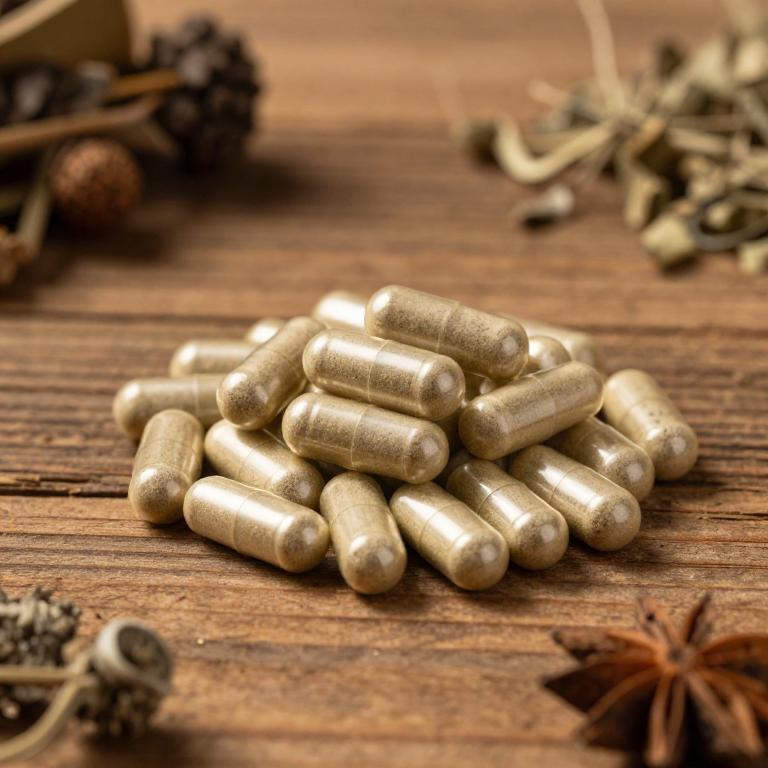
Herbal capsules are a popular natural remedy for managing hot flashes, which are common symptoms of menopause.
These capsules often contain ingredients such as black cohosh, red clover, and evening primrose oil, which are believed to help regulate hormonal balance and reduce the frequency and intensity of hot flashes. Many women prefer herbal capsules because they offer a non-hormonal alternative to conventional treatments, avoiding potential side effects associated with hormone replacement therapy. While some studies suggest they may provide mild relief, their effectiveness can vary, and it is important to consult a healthcare provider before starting any herbal supplement.
Overall, herbal capsules can be a useful option for women seeking natural support during menopause, though they should be used as part of a comprehensive approach to symptom management.
Table of Contents
- 1. Black cohosh (Cimicifuga racemosa)
- 2. Chaste tree (Vitex agnus-castus)
- 3. Licorice (Glycyrrhiza glabra)
- 4. Maca (Lepidium meyenii)
- 5. Field horsetail (Equisetum arvense)
- 6. Puncture vine (Tribulus terrestris)
- 7. Ginger (Zingiber officinale)
- 8. Echinacea (Echinacea purpurea)
- 9. Stinging nettle (Urtica dioica)
- 10. Golden root (Rhodiola rosea)
1. Black cohosh (Cimicifuga racemosa)

Cimicifuga racemosa, commonly known as black cohosh, is a herbal remedy often used to alleviate menopausal symptoms, particularly hot flashes.
Herbal capsules containing Cimicifuga racemosa are popular among women seeking natural alternatives to hormone replacement therapy. Studies suggest that this herb may help reduce the frequency and intensity of hot flashes by modulating estrogen receptor activity. However, it is important to consult a healthcare provider before use, as it may interact with certain medications or have side effects in some individuals.
Despite its traditional use, more research is needed to fully understand its efficacy and long-term safety.
2. Chaste tree (Vitex agnus-castus)

Vitex agnus-castus, commonly known as chasteberry, is a herbal remedy often used to alleviate symptoms of menopause, particularly hot flashes.
This herb is believed to support hormonal balance by influencing the pituitary gland, which may help regulate estrogen levels in the body. Clinical studies suggest that Vitex agnus-castus herbal capsules may reduce the frequency and intensity of hot flashes in postmenopausal women. It is typically taken in capsule form, with a recommended dosage of 40 to 100 mg per day, and is generally well-tolerated with minimal side effects.
As with any supplement, it is advisable to consult a healthcare provider before starting Vitex agnus-castus, especially for those with existing health conditions or on other medications.
3. Licorice (Glycyrrhiza glabra)

Glycyrrhiza glabra, commonly known as licorice root, has been traditionally used in herbal medicine for its potential to alleviate symptoms of menopause, including hot flashes.
Studies suggest that the active compound glycyrrhizin in licorice root may help regulate hormonal imbalances and reduce the frequency and intensity of hot flashes. However, it is important to note that licorice root can have side effects, such as increased blood pressure, and should be used with caution, especially in individuals with hypertension or adrenal disorders. Glycyrrhiza glabra herbal capsules are often marketed as a natural alternative to hormone replacement therapy, but they should not replace medical advice or treatment without consulting a healthcare professional.
As with any supplement, it is advisable to follow recommended dosages and monitor for any adverse reactions.
4. Maca (Lepidium meyenii)
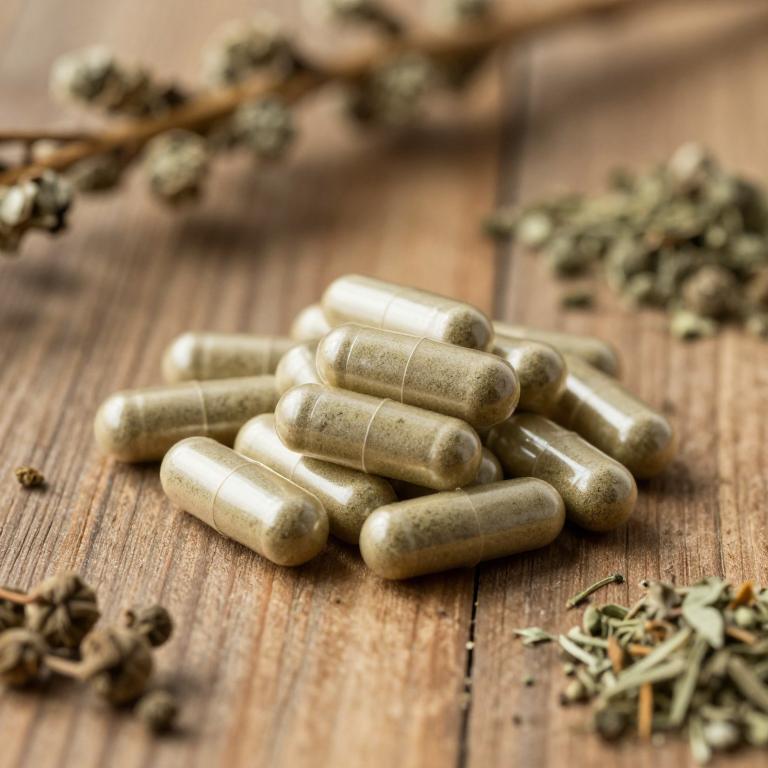
Lepidium meyenii, commonly known as Peruvian maca, has been traditionally used to support hormonal balance and alleviate symptoms associated with menopause, including hot flashes.
Herbal capsules containing Lepidium meyenii are often marketed as natural supplements that may help regulate body temperature and reduce the frequency and intensity of hot flashes. Studies suggest that maca may influence the hypothalamus, which plays a key role in regulating body temperature and hormonal responses. While research on its effectiveness for hot flashes is ongoing, many women report positive effects after consistent use.
As with any supplement, it is advisable to consult a healthcare provider before starting Lepidium meyenii, especially for those with underlying health conditions or taking other medications.
5. Field horsetail (Equisetum arvense)
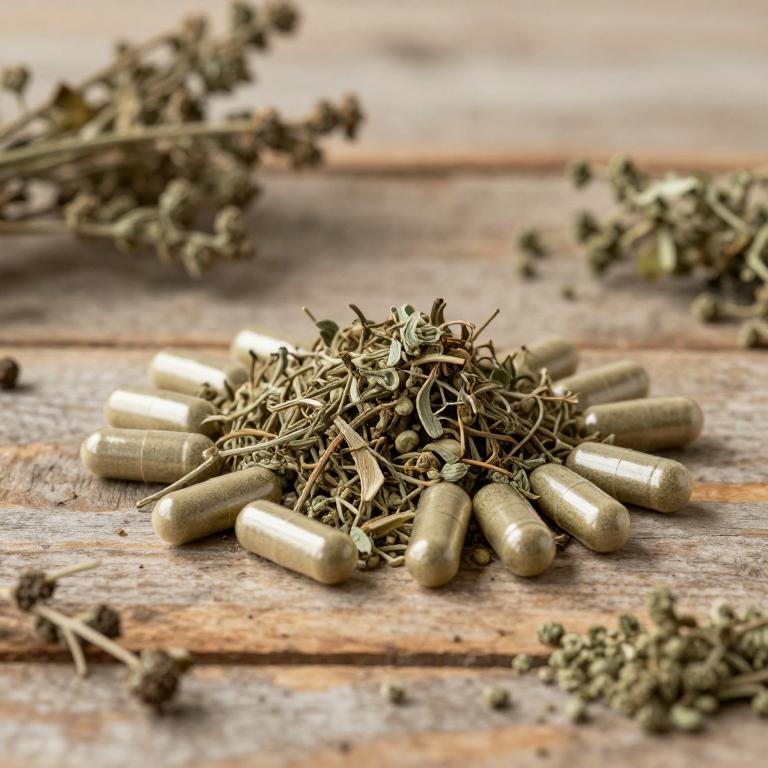
Equisetum arvense, commonly known as field horsetail, is a traditional herbal remedy that has been used for its potential to alleviate symptoms of hot flashes, particularly in women undergoing menopause.
The capsules are typically standardized to contain high levels of silica and other bioactive compounds, which may contribute to their efficacy. Some studies suggest that Equisetum arvense may help regulate hormonal imbalances and reduce the frequency and intensity of hot flashes. However, it is important to consult with a healthcare provider before using these capsules, as they may interact with certain medications or have side effects in some individuals.
Despite its traditional use, more clinical research is needed to fully establish its safety and effectiveness for managing hot flashes.
6. Puncture vine (Tribulus terrestris)
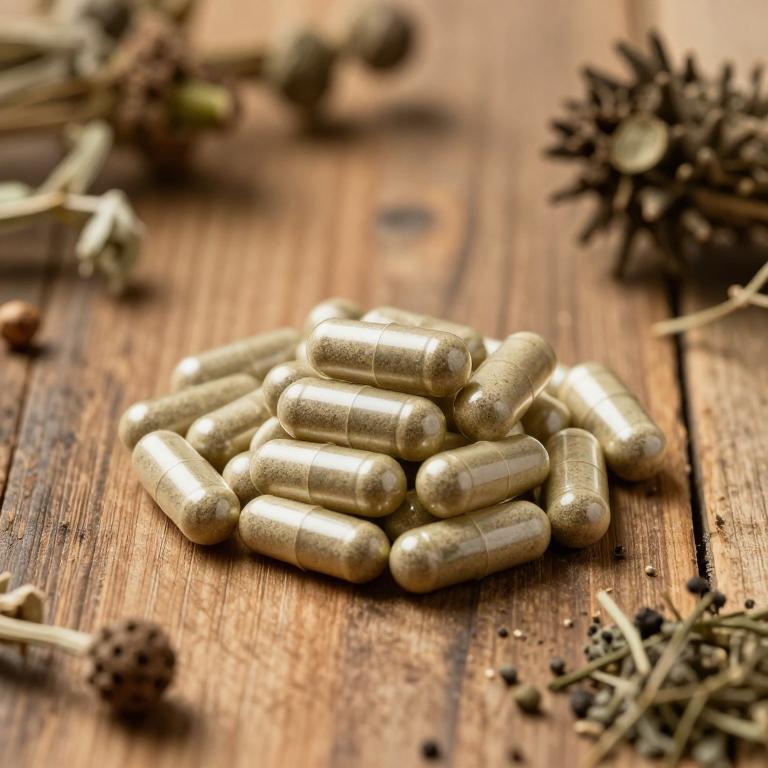
Tribulus terrestris, a traditional herbal remedy, has been studied for its potential to alleviate symptoms of hot flashes in women experiencing menopause.
These herbal capsules are believed to support hormonal balance by influencing the production of certain hormones, such as testosterone and estrogen, which may help regulate body temperature and reduce the frequency of hot flashes. While some research suggests that Tribulus terrestris may offer mild relief, more clinical trials are needed to confirm its effectiveness and safety for this specific use. It is often used as a natural alternative to hormone replacement therapy, though it should not replace medical advice or treatment without consulting a healthcare professional.
As with any supplement, it is important to consider potential side effects and interactions with other medications before starting Tribulus terrestris capsules.
7. Ginger (Zingiber officinale)

Zingiber officinale, commonly known as ginger, has been traditionally used for its potential to alleviate symptoms of hot flashes, which are common during menopause.
Herbal capsules containing zingiber officinale are often marketed as natural remedies to help manage the sudden feelings of heat, sweating, and flushing associated with hormonal changes. Studies suggest that ginger may support the body's thermoregulatory system and could have mild estrogen-like effects, though more research is needed to confirm its efficacy. These capsules are typically made from dried and ground ginger root, and they are often taken in low doses to minimize gastrointestinal side effects.
While ginger may offer some relief, it is advisable to consult a healthcare provider before using it as a complementary therapy for hot flashes.
8. Echinacea (Echinacea purpurea)

Echinacea purpurea, commonly known as purple coneflower, is a popular herbal remedy often used for its potential immune-boosting properties.
While it is traditionally used to support the immune system, some studies suggest that echinacea may also help alleviate symptoms of menopause, including hot flashes. The active compounds in echinacea, such as alkamides and polysaccharides, may contribute to its ability to modulate hormonal balance and reduce inflammation. Echinacea purpurea herbal capsules are a convenient form of supplementation that can be taken daily to manage hot flashes and other menopausal symptoms.
However, it is important to consult with a healthcare provider before starting any new herbal supplement, especially for individuals with existing health conditions or those taking other medications.
9. Stinging nettle (Urtica dioica)

Urtica dioica, commonly known as stinging nettle, is a herbal remedy that has been explored for its potential to alleviate symptoms of hot flashes in menopausal women.
The capsules are typically standardized to contain a specific concentration of active compounds, such as flavonoids and polysaccharides, which are believed to contribute to their therapeutic effects. Some studies suggest that Urtica dioica may help regulate hormonal imbalances and reduce the frequency and intensity of hot flashes by supporting the body's natural detoxification processes. However, while anecdotal reports and preliminary research show promise, more rigorous clinical trials are needed to confirm its efficacy and safety for this specific use.
As with any herbal supplement, it is advisable to consult a healthcare provider before starting Urtica dioica capsules, especially for individuals with existing health conditions or those taking other medications.
10. Golden root (Rhodiola rosea)
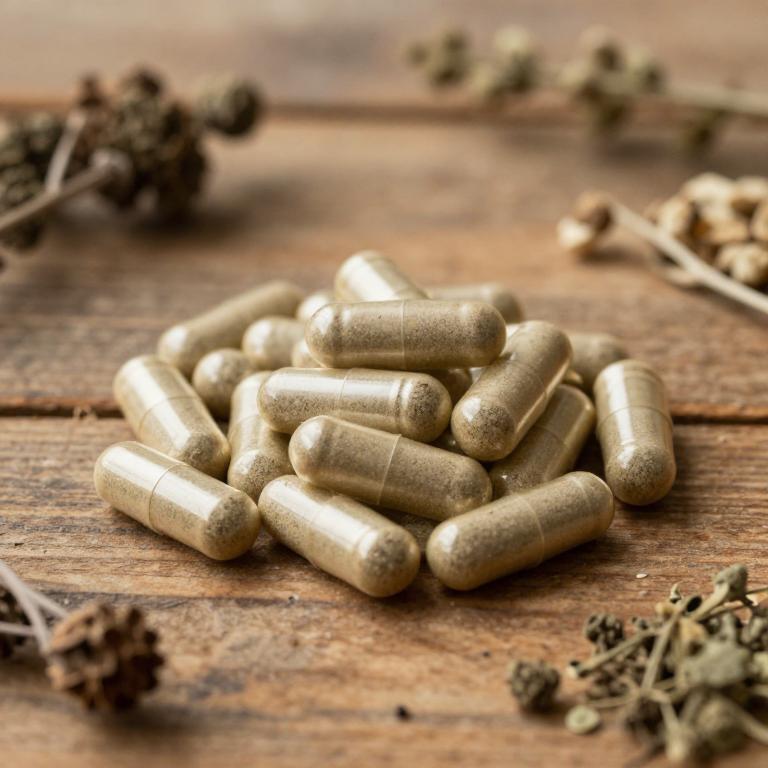
Rhodiola rosea, a adaptogenic herb, has gained attention for its potential to alleviate symptoms of hot flashes, a common menopausal experience.
Studies suggest that its active compounds, such as rosavins and salidrosides, may help regulate hormonal imbalances and reduce the frequency and intensity of hot flashes. When taken in the form of herbal capsules, rhodiola rosea is often well-tolerated and can be a natural alternative to hormone replacement therapy. It is recommended to consult a healthcare provider before starting any supplement regimen, especially for women with pre-existing medical conditions.
Overall, rhodiola rosea herbal capsules may offer a supportive option for managing menopausal hot flashes with minimal side effects.